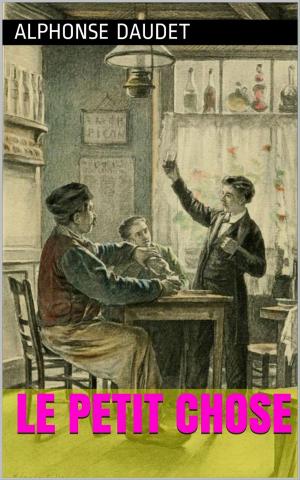A Fighter Pilot Looks At the World Upside Down
Book 1 of a Philosophical Memoir
Biography & Memoir, Philosophers| Author: | Dick Jonas | ISBN: | 9780965718936 |
| Publisher: | Erosonic | Publication: | September 3, 2011 |
| Imprint: | Language: | English |
| Author: | Dick Jonas |
| ISBN: | 9780965718936 |
| Publisher: | Erosonic |
| Publication: | September 3, 2011 |
| Imprint: | |
| Language: | English |
Fighter pilots see the world differently from other people. This series of books is a philosophical memoir of how I sense humanity, society, and the universe I live in. I began these writings when I was 33 years old. For several decades it never occurred to me that I might want to publish them. In the sunset of my years — I am three-score and twelve, now — it began to dawn on me that it would be important, though I'm not sure to whom, for my progeny to know how I sensed the universe in which I dwelt. When that realization began to awaken, I was at first regretful that I had not undertaken the project much earlier in life. Thoughtful reflection suggests that perhaps I didn't have much to say up until then. I have collaborated with no one in this project. Nor will I, for the whole idea is to leave behind for posterity my own exclusive philosophical cogitations. It will be clear from the text that though there has been no collaboration, there was and is a great deal of influence from a great many people and philosophies on the way my mind perceived things: • My Christian upbringing • My parents, siblings, and other family members • The people of the community where I grew up • The schools where I was formally educated • What I learned in those schools • What I learned in the arena of life • Friends • Professional associations in religion, the military, the field of education, and the entertainment world • Philosophers, both ancient and modern, who communicated with me through Gutenberg's marvelous invention. At first, I referred to this project as "Ecclesiastes." I think that choice may have been influenced by how the biblical book is titled: Ecclesiastes, or the Preacher. As I read through the books, sometimes it seems that I am Ecclesiastes, and sometimes it reads like he is a friend with whom I correspond. I don't think either sense is of any great definitive importance; it doesn't matter much either way. It is my great hope that my children and grandchildren, and theirs, and theirs, and on beyond, will look into my soul as it is reflected in these pages. The progeny of any of my contemporaries are also welcome to inquire. Please be advised, these books are not written in English. They are written in American redneck fighter pilot. They read, especially after about the first 20 years, like they would sound if you and I were having a conversation — polite, casual, or even heated on occasion. Perhaps over a cup of cheer. Consequently, language technicalities sometimes take a bit of a beating. Some examples: • ain't — for am/is/are not • ever — for every • don't — for doesn't • weren't — for wasn't; and the converse • they — for there • anyhoo — for anyhow • 'at — for that • thunk — for thought (past tense of think) • son of a bitch — several variations: sunzabitches, sumbitch, et al • . . . the spaced ellipsis — a favorite device for making print sound like conversation • — the em dash — another device for similar purpose • frequent omission of an essential article or personal pronoun at the beginning of a sentence • occasional omission of the final 'g' and it's replacement with an apostrophe on gerunds and present participles • the use of all upper case letters in some words and phrases; it's my way of shouting in print. There are some exceptions. In the earlier years, I used all upper case for some eternal concepts: LOVE, TRUTH, and occasionally MAN signifying all humankind. • italics are used for one of two purposes: to provide an emphasis in print which would be communicated with vocal inflection in a conversation; or to set apart titles of artistic or literary works • the entries beginning in the mid 80s, start to reflect more and more a lot of the cynicism and impatience one acquires with age. Profanity, innuendo, and other foul language begin to appear. Be fore-warned: There are some areas in the books not appropriate for children nor polite company.
Fighter pilots see the world differently from other people. This series of books is a philosophical memoir of how I sense humanity, society, and the universe I live in. I began these writings when I was 33 years old. For several decades it never occurred to me that I might want to publish them. In the sunset of my years — I am three-score and twelve, now — it began to dawn on me that it would be important, though I'm not sure to whom, for my progeny to know how I sensed the universe in which I dwelt. When that realization began to awaken, I was at first regretful that I had not undertaken the project much earlier in life. Thoughtful reflection suggests that perhaps I didn't have much to say up until then. I have collaborated with no one in this project. Nor will I, for the whole idea is to leave behind for posterity my own exclusive philosophical cogitations. It will be clear from the text that though there has been no collaboration, there was and is a great deal of influence from a great many people and philosophies on the way my mind perceived things: • My Christian upbringing • My parents, siblings, and other family members • The people of the community where I grew up • The schools where I was formally educated • What I learned in those schools • What I learned in the arena of life • Friends • Professional associations in religion, the military, the field of education, and the entertainment world • Philosophers, both ancient and modern, who communicated with me through Gutenberg's marvelous invention. At first, I referred to this project as "Ecclesiastes." I think that choice may have been influenced by how the biblical book is titled: Ecclesiastes, or the Preacher. As I read through the books, sometimes it seems that I am Ecclesiastes, and sometimes it reads like he is a friend with whom I correspond. I don't think either sense is of any great definitive importance; it doesn't matter much either way. It is my great hope that my children and grandchildren, and theirs, and theirs, and on beyond, will look into my soul as it is reflected in these pages. The progeny of any of my contemporaries are also welcome to inquire. Please be advised, these books are not written in English. They are written in American redneck fighter pilot. They read, especially after about the first 20 years, like they would sound if you and I were having a conversation — polite, casual, or even heated on occasion. Perhaps over a cup of cheer. Consequently, language technicalities sometimes take a bit of a beating. Some examples: • ain't — for am/is/are not • ever — for every • don't — for doesn't • weren't — for wasn't; and the converse • they — for there • anyhoo — for anyhow • 'at — for that • thunk — for thought (past tense of think) • son of a bitch — several variations: sunzabitches, sumbitch, et al • . . . the spaced ellipsis — a favorite device for making print sound like conversation • — the em dash — another device for similar purpose • frequent omission of an essential article or personal pronoun at the beginning of a sentence • occasional omission of the final 'g' and it's replacement with an apostrophe on gerunds and present participles • the use of all upper case letters in some words and phrases; it's my way of shouting in print. There are some exceptions. In the earlier years, I used all upper case for some eternal concepts: LOVE, TRUTH, and occasionally MAN signifying all humankind. • italics are used for one of two purposes: to provide an emphasis in print which would be communicated with vocal inflection in a conversation; or to set apart titles of artistic or literary works • the entries beginning in the mid 80s, start to reflect more and more a lot of the cynicism and impatience one acquires with age. Profanity, innuendo, and other foul language begin to appear. Be fore-warned: There are some areas in the books not appropriate for children nor polite company.















